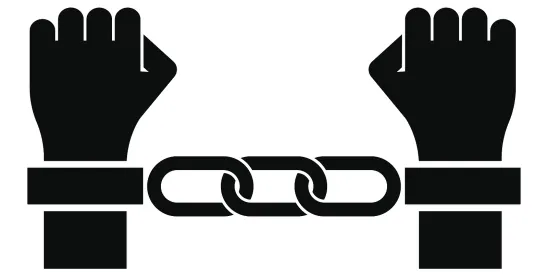On May 9, 2025, President Donald Trump issued an Executive Order entitled “Fighting Overcriminalization in Federal Regulations.” The Order takes aim at what the President calls “regulatory crimes,” with the intended purpose of easing the “regulatory burden on everyday Americans” and to “ensure no American is transformed into a criminal for violating a regulation they have no reason to know exists.” The Order marks another step taken by the Trump Administration to deregulate various industries and sectors of the economy.
Over the years, federal agencies have promulgated a vast number of regulations, many of which carry civil monetary penalties or even criminal punishments. While the exact number is unknown, despite concerted efforts to find out, reasonable estimates of the total number of regulations that carry criminal penalties are upwards of 300,000, with the Federal Register now spanning over 175,000 pages. The result is it is impossible for an ordinary person to apprise themselves of all of them.1 To that end, the EO recognizes this problem and seeks to clear the muddy waters of federal regulations as follow:
- Prosecution of Criminal Regulatory Offenses are Disfavored.
The Executive Order makes it the official policy of the United States that criminal enforcement of “criminal regulatory offenses” in general is “disfavored.” The Order states that if criminal regulatory offenses are to still be prosecuted, it is “most appropriate” for individuals and companies “who know or can be presumed to know what is prohibited or required by the regulation and willingly choose not to comply.” - Prosecution of Strict Liability Regulatory Offenses Specifically are Disfavored.
In addition to disfavoring prosecuting criminal regulatory offenses, the Executive Order specifically addressed regulatory offenses that attach strict liability. Strict liability exists when a defendant is liable for committing an action, regardless of intent or mental state when committing the action. Most federal crimes, and in particular white-collar crimes, require the government to prove mental culpability (called mens rea), whether it involves acting willfully, knowingly, purposefully, recklessly, or with negligence. Strict liability offenses require none of the above. As such, even if a person is either unaware of a federal regulation or that they are in violation of it, they can be charged with a crime for violating a regulation they did not know, and had no reason to know, existed. The order calls for prosecutors to resolve strict liability regulatory offenses through civil penalties, not criminal prosecution. - Better Transparency. Within one year of the date of the Executive Order, each executive agency must produce a list of regulatory criminal offenses available to the public on the agencies’ webpages. For each offense on the list, the agency must include any potential criminal penalties for violations and the applicable mens rea standard. Any criminal enforcement of regulatory offenses that are not listed is “strongly discouraged.” Moving forward, any proposed regulations that might carry criminal penalties “should explicitly describe the conduct subject to criminal enforcement, the authorizing statutes, and the mens rea standard applicable to those offenses.”
- Default Mens Rea Requirement. The Executive Order directs the head of each executive agency to coordinate with the Attorney General to determine whether there is authority to adopt a “default” mens rea standard for criminal regulatory offenses that do not state a mens rea standard. In addition, the heads of agencies shall examine whether existing mens rea standards are authorized by statute and they shall present a plan for changing the current standards to a generally applicable standard. This marks an effort by the Trump Administration to consolidate varying levels of scienter requirements into a more uniform standard. 2
- Clear Guidance for Criminal Referrals to the DOJ. The Executive Order requires each department or agency to publish guidance in the Federal Register on its process for deciding whether to make a criminal referral to the Department of Justice for violations of federal regulations. The guidance should include factors such as: (a) the harm or risk of harm, pecuniary or otherwise, caused by the alleged offense; (b) the potential gain to the putative defendant that could result from the offense; (c) whether the putative defendant held specialized knowledge, expertise, or was licensed in an industry related to the rule or regulation at issue; and (d) evidence, if any is available, of the putative defendant’s general awareness of the unlawfulness of his conduct as well as his knowledge or lack thereof of the regulation at issue.
- Exclusions. The Executive Order explicitly excludes immigration enforcement and national security functions from its provisions. This is consistent with previous Executive Orders by President Trump regarding deregulation.3
Key Takeaways
- Watch for Additional Agency-Level Information. As discussed above, within a year, executive agencies will be required to create a list of their regulations that carry criminal penalties. These lists will serve as valuable resources for those seeking to navigate affected industries.
- Impact on Highly Regulated Industries. Those who operate in highly regulated industries are often presumed to have knowledge of the statutes and regulations that govern that industry. Because the Executive Order maintains that prosecution of criminal regulatory offenses is most appropriate in cases where the defendants know or are presumed to know the law, it will likely have a more limited impact on those operating in highly regulated industries.
- Impact on Existing Doctrines. The executive order may weaken enforcement of regulations under the Park Doctrine (also called the “Responsible Corporate Officer Doctrine”). The Park Doctrine allows for criminal liability to be imposed on “responsible corporate officers” for violations of law and regulations committed by corporations. Because the Doctrine allows for liability even without proof of the specific officer knowing of the violation, these violations are effectively treated as strict liability offenses. The theory is that such executives were in positions to prevent the public from being harmed and therefore their failure to do so is sufficient.
- More Opportunities for Settlement/Alternative Resolution. There may now be more opportunities for those facing both civil and criminal liability for regulatory offenses to avoid criminal prosecution through negotiating non-prosecution agreements, deferred prosecution agreements, and/or settling the matter civilly. Agencies might be more likely to seek deferred prosecution of offenses now that criminal prosecution of regulatory crimes is disfavored, which offers more leverage to those in harm’s way.
However, be aware of other ways that some executive agencies may use to punish those who they have targeted. For example, the Office of the Inspector General may exclude practitioners from federal healthcare programs for a litany of reasons, and while exclusion is severe, it is not considered criminal punishment for the purpose of the Order.
1 For an example of how this affects an ordinary person, see Mike Fox, The Vindictive Prosecution of a Champion Runner, Cato Institute (Mar. 17, 2025), https://www.cato.org/commentary/vindictive-prosecution-champion-runner/. See also Jacob Sullum, The Federal Government's 175,000 Pages of Regulations Turn the Rule of Law into a Cruel Joke, Reason Magazine (May 14, 2025) https://reason.com/2025/05/14/the-proliferation-of-regulatory-crimes-turns-the-rule-of-law-into-a-cruel-joke/.
2 Scienter requirements for criminal offenses have been subject to different interpretations. For example, in Ruan v. United States, 597 U.S. 450 (2022), the Court narrowed the definition of a knowing violation of the Comprehensive Drug Abuse Prevention and Control Act (CSA). Specifically, the CSA prohibits a provider from, “except as authorized[,] ... for any person knowingly or intentionally ... to manufacture, distribute, or dispense ... a controlled substance.” The Court deviated from past interpretations and held that the “knowing” mens rea requirement applied to the “except as authorized” language despite its placement in the statute, meaning that the defendant must know that their behavior is outside of the boundaries of authorization. This is just one example of how unclear statutory and regulatory language regarding scienter requirements can lead to confusion upon application.
3 See Exec. Order No. 14,219, 90 C.F.R. 10583.
4 For more information on the RCO Doctrine, see Michael Clark, The Responsible Corporate Officer Doctrine, J. of Health Care Compliance, Jan.-Feb. 2012.







 />i
/>i
